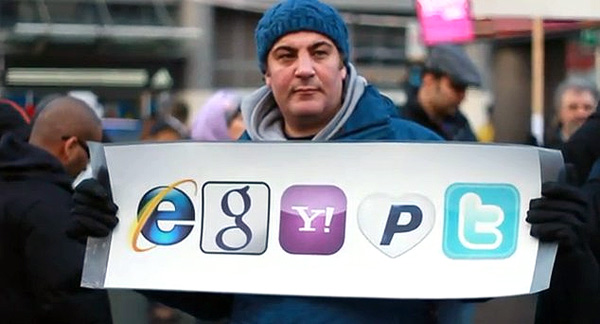History has repeated itself, again. Looks like PM
Najib had his balls fried. He should really start planning his long vacation as
the future of Barisan National appears rather bleak. BERSIH 3.0 showcased the
banal Malaysian government is not simple. Today, they say apple. Tomorrow they will
say durian. Next week they declare no such fruits existed. Malaysian political
arena is like a cock-fighting match. Full of drama, colourful and twisted.
Summary
of Bersih 3.0
On 28 April 2012, BERSIH 3.0 has met with another vile
finale. Aside from the unnecessary razor
wires around Dataran Square which was a banned venue, the Malaysian police
had used water canons and tear gas to disperse crowds. The Malaysian police has made a fatal mistake
and caused public furore. There were contradicting reports between the
Malaysian government and the Bersih organisers. Bersih organisers claimed that it
was a peaceful sit-in protest until it was hijacked by agent provocateurs at
Dataran Merdeka. If we were to look at how Bersih had managed to galvanise
rallies in 35 countries and 85 locations, this was indeed successful. On the other hand,
the Malaysian government claimed that BERSIH 3.0 participants broke the law as
they breached the barricades and attacked policemen. After every BERSIH rally, each generation, people are becoming more emboldened
to challenge the police as the stand-off continues. One thing’s for sure, the
opposition should stay away from influencing the outcome of electoral reform.


Era of
Social Movements
Role of civic societies have made people engage, interact
and involve in decision making process in public affairs with the hope that change
can occur before the elections. Civic awareness in Malaysia has unquestionably
influence BERSIH rally and represent a profession. Through social movements it
shows there is a growing voice in public affairs and people push forward their
agenda and demand political legitimacy from the Malaysian government. The mass
protest worked and has been capable of galvanising massive collective action
peacefully throughout the world. The main demand for BERSIH is simply to call
for a clean and fair elections for the people and the country.


About 40,000 people attended the BERSIH 1.0 rally on November 10, 2007,
and the number of participants for the BERSIH 2.0 rally on July 9 last year
increased by 10,000 people, even after the police had sealed the city. It
showed that BERSIH has enhanced its capacity to mobilise. It was reported
some 80,000 participants had taken part in BERSIH 3.0 last Saturday at Dataran
Merdeka alone.
BERSIH 1.0, was a flashpoint as it created an impact
in subsequent rallies. The demographic made up of unanimous people from all
walks of life. In BERSIH 2.0, there was an impasse between the people and the
government. The Malaysian government had declared that BERSIH was illegal.
Water canons and tear gas were used to disperse the crowds in 2010. In BERSIH
3.0, initially the Malaysian government appeared eager to repair the image of the government
through several policy changes. Home Minister, Datuk Hishammudin had given his
word that BERSIH sit-in demonstration will go on as planned as it would pose no
security concern to the government.
Tattered
image of Barisan National
The image of the ruling coalition have been charred after BERSIH 3.0. The Malaysian government will have to follow the people’s choice. Reluctance to electoral reform may cause a disadvantage to the ruling coalition. Electoral reform is very
important in building a culture and society. So, this is how the future of the
world will be. People will demand for more transparency and they will dabble
into government's affairs as ultimately their lives wil be affected by these
policies. Seems like Najib’s government will need to postpone the election again to
a later date.
Impact
of Bersih on Singapore
The use of the social media in proletarian movements permits the public
to redefine the venerable adage of strength in numbers. Most importantly, it
emboldens the people to be engaged citizens, blind to distance and colour. However,
many argue that "soft protest" is an anemic replica of the commitment
required on the ground, along with its prospective risks. However, BERSIH have
proven that online protests can be easily translated into action, thanks to the
mighty digitial pen.
Cynicism towards the “old guard” is mounting, especially amongst young
voters who have grown impatient at the mainstream media bias and marginalisation
throughout their lives. If the demands of the younger generation are not met, they
will retaliate and throw their antics around like a spoiled-brat until the authority
relent or gives up. We have witnessed Arab and Malaysian Spring, Singapore’s turn
has yet to come.












